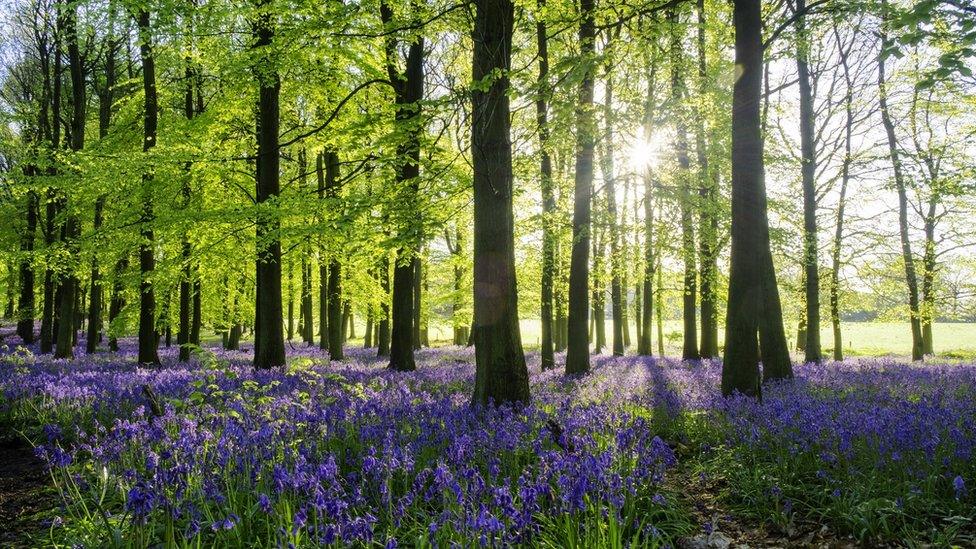Charity calls for 'bigger and better' UK forests
- Published
- comments

Forests with lots of different kinds of trees would be more better for the UK's wildlife, according to campaigners.
The Soil Association is calling for the planting of more types of trees in UK forests to help support habitats for animals and to also encourage the growth of useful plants.
Many UK forests are 'plantations', meaning they were planted by humans as a source for timber or to restore woodland.
These kinds of forests often rely on only a few kinds of fast-growing trees, like conifers.
But the charity says these types of trees are not supporting the UK's natural environment enough, and are calling for bigger and more diverse forests.
Forests cover around 13% of the UK's land, and there are calls from the UK Climate Change Committee - which advised the government - for this to grow to 19% by 2050.
Forests and woodland are excellent ways to combat greenhouse gases like carbon, which cause climate change.
Trees and soil are often called 'carbon sinks', as they absorb and remove carbon from the air.
But a report by the Soil Association says that 99% of plantation forests and 93% of natural woodland are "not in good ecological condition".
If you cannot see the quiz, click here..
They also want 5% of the UK's farmland, which is seen by some as having a negative impact on the natural environment, given over to woodland by 2030.
Clive Thomas, from the Soil Association, said the government needs to do more to support the UK's forests and their inhabitants.
"It is critical to improve the health and diversity of our existing and future forests and woodland and their soils for them to achieve their full potential in tackling the combined climate, nature and health crises," he said.
A spokesperson from the Department for the Environment, Food and Rural Affairs said the government is "committed to trebling tree planting rates" in the next two years.
They also said that they support a mixture of types of trees and forests, saying the UK forestry standard prevents the planting of single types of trees.
- Published1 December 2019
- Published16 April 2020
- Published15 January 2020
